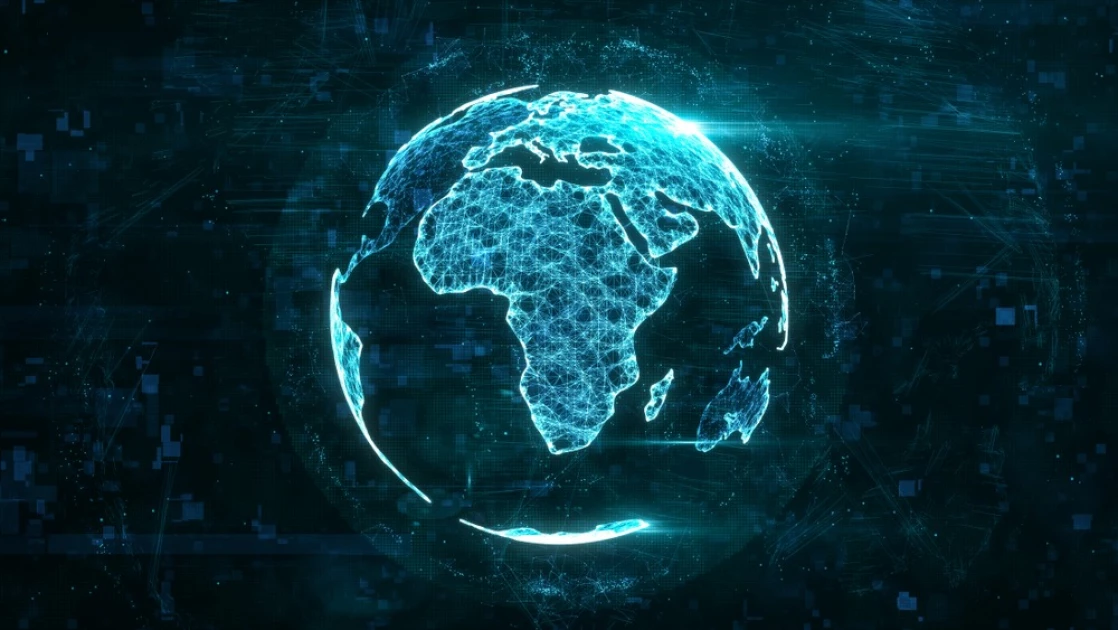Digital Africa: We need a collective approach to harness the benefits


Audio By Carbonatix
Digital platforms powered by technological innovations have primarily re-arranged the media space in Africa, and for Africans to tell their story, use technology for empowerment and catch with the rest of the world, it must engage as a continent with the major players especially the big techs.
There is
more demand for broad based approaches to the application of technology
including AI and measuring its impact on communities than just what the
technology providers are doing and providing.
The internet
has changed greatly, democratizing communication and public perception of
issues, enabling citizens to share their opinion on global matters with less
restrictions, and their story best understood by themselves and allowing people
the chance to connect with a wide range of great sources and perspectives.
This has
increased the range of information available on previously excluded topics and
marginalized communities and continents, allowing people to hold warped
perceptions on others, perpetuate stereotypes and one sided -largely negative
narratives- especially on Africa, Asia and China leading to fear to invest,
trade imbalances and negative media coverage devoid of facts.
The media
that would have mitigated the situation is caught up and has by design
continued present content on these regions with bias often aided by technology.
Such tools as artificial intelligence, infused with technology aided bias,
continue producing information, either produced by locals at no cost, or have
no local context, understanding and meaning, but as defined by community rules
determined by the digital platforms and not players on those already regions.
It’s
important and urgent that the media, which has equally been affected by
technology including digital platforms and AI, lead the effort to call for a
fair playing field in how countries access, use and leverage on the impact.
AI has a
very big impact on critical issues including public information, elections, and
stories of people and their struggles and opportunities, which ought to be
told, to influence global perspectives on these people- to deal with the
historical injustices and current opportunities to connect and empower them,
but this can only happen if the platform providers are fair.
Media in
Africa cannot sensitize and provide the much-needed information on platforms
owned by others, who determine the rules, regulations and modes of operations.
Now that Africa cannot provide its own digital platforms, it must collectively
engage and be heard by the world, to be listened to and considered, give its
terrain, level of development, language and cultural diversity and historical
injustices, in terms of dealing with the use and impact of technology.
In media for
example, players on the continent, aware of the background, should adopt more
open regimes on content regulation, information integrity and responsible use
of digital platforms that don’t compromise freedom of expression and access to
information.
Globally,
things have changed and moved, but a few people are stuck on criminalizing free
speech using arguments on hate speech, harmful content, disinformation, foreign
manipulation of information and on extreme petty thinking such as annoying
speech yet even with laws on hate speech and publication of false news, very
few cases meet the threshold for sustaining a charge.
The
technological wars pitting the USA, Europe, China and Russia are too fast for
Africa, and a united front from the continent is required today more than ever
before. The AU has for example already made a continental AI strategy, a very
good move. Kenya recently launched its national AI strategy and bodies such as
the Media Council of Kenya that regulates the media space have moved further
and developed AI guidelines for use by journalists.
AU needs to
with the help of the big techs to spread this strategy and assist more
countries domesticate it, while at the same time uniting the continent in
engaging with the digital platform providers as a continent rather than as
countries, for once divided, the continent won’t get a fair share. It is
acknowledged that tech companies have begun stepping up their standards and
actions to curb harmful content due to the increasing circulation of illegal
and harmful content, although more needs to be done on platforms.
During the
2nd Pana African Media Conference in Arusha recently, Tanzania Vice President
Dr. Phillip Mpango outlined four urgent
priorities for Africa’s in the media sector; laws, policies, and regulations
that guide AI in ways that protect journalism ethics, the public’s right to
accurate information, and sustainable development, African journalists to
reclaim the continent’s narrative away from portraying as a land of wars,
poverty, and chaos and focus stories of resilience, innovation, and progress
through an authentic African voice.
In addition,
States and non-state actors must equip citizens with the knowledge and critical
skills to navigate today’s information-saturated landscape and resist
manipulation through media information and digital literacies, and more
importantly establish and sustain strong media accountability mechanisms.
The summit
culminated in a forward-looking set of resolutions, committing participants to
harness AI as an ally, preserve Africa’s narratives and heritage, and invest in
inclusive media development.
Among the
key actions adopted: Upskilling journalists and regulators to ethically use AI
and combat disinformation, developing African-centric large language models
(LLMs) to support indigenous languages and cultural storytelling, mainstreaming
digital and media literacy in school curricula, expanding ICT infrastructure
through broadband and innovation hubs and
called on African states to require global digital platforms to
negotiate fair economic terms with African news publishers — drawing
inspiration from Australia’s News Media Bargaining Code and the EU’s Digital
Markets Act.


Leave a Comment